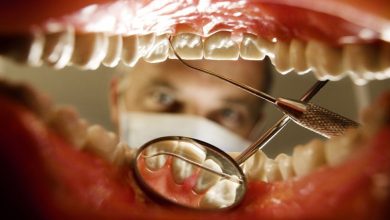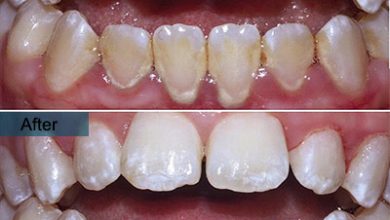How Often Should You Do Dental Cleaning: The Ultimate Guide

Dental cleaning should be done every six months for optimal oral health. Regular dental cleaning, also known as prophylaxis, is essential to maintain healthy teeth and gums.
It involves the removal of plaque and tartar build-up that cannot be removed through regular brushing and flossing. By visiting your dentist every six months, you can prevent the progression of gum disease, cavities, and other dental issues. Moreover, regular dental cleanings allow your dentist to detect any potential problems at an early stage, ensuring timely treatment and preventing more severe dental issues.
So, make sure to schedule your dental cleaning every six months to keep your smile shining bright and your oral health in check.
Importance Of Regular Dental Cleanings
Regular dental cleanings are essential for maintaining good oral health and preventing dental problems. One key benefit of regular cleanings is the prevention of tooth decay and cavities. Dental cleanings help remove plaque and tartar buildup, which can lead to the erosion of tooth enamel and the formation of cavities. By keeping your teeth clean, you can reduce the risk of tooth decay and maintain a healthy smile.
Another crucial advantage of regular dental cleanings is the reduction of gum disease. Plaque and tartar buildup not only affect the teeth but also the gums. Without proper cleaning, bacteria can accumulate and cause inflammation, leading to gum disease. Regular cleanings help remove bacteria and prevent the onset of gum disease.
In addition to preventing tooth decay and reducing the risk of gum disease, regular dental cleanings are essential for maintaining overall oral health. During a cleaning, the dentist can detect early signs of oral health issues, such as cavities, gum disease, and oral cancer. Early detection allows for prompt treatment and better overall oral health.
Factors To Consider For Dental Cleaning Frequency
Factors to consider for dental cleaning frequency include personal oral hygiene habits, dental history and previous dental treatments, and risk factors such as smoking or diabetes. Personal oral hygiene habits play a significant role in determining how often one should get a dental cleaning. Regular brushing and flossing, as recommended by dentists, help in maintaining oral health and reducing the need for frequent cleanings. Additionally, individuals with a history of dental issues or previous dental treatments may require more frequent cleanings to prevent any further complications. Furthermore, certain risk factors like smoking or having diabetes can increase the chances of gum disease, making regular dental cleanings essential. It is crucial to consult with a dentist to determine the appropriate frequency for dental cleanings based on these factors and individual needs.
Recommended Dental Cleaning Schedule
Maintaining a recommended dental cleaning schedule is crucial for optimum oral health. Regular cleanings every six months are generally recommended, but your dentist may suggest more frequent cleanings based on your individual needs. Schedule a visit today to keep your smile healthy and bright.
| General guidelines for routine dental cleanings |
|---|
| For maintaining good oral hygiene, it is generally recommended to have a dental cleaning every six months. Regular cleanings help in removing plaque and tartar buildup that cannot be eliminated with regular brushing and flossing alone. Professional cleanings also help in preventing dental issues such as cavities, gum disease, and bad breath. |
| Frequency for individuals with specific oral health conditions |
|---|
| Individuals with specific oral health conditions may require more frequent dental cleanings. For example, individuals with periodontal disease may need to have cleanings every three to four months. Your dentist will be able to provide personalized recommendations based on your oral health condition. |
| Importance of professional evaluation for personalized recommendations |
|---|
| It is important to have regular dental check-ups and evaluations to assess your oral health and determine the appropriate frequency for dental cleanings. A professional dental evaluation can identify early signs of dental issues and provide necessary guidance for maintaining optimal oral health. Your dentist will take into consideration factors such as your overall oral health, lifestyle, and any specific conditions you may have to recommend the ideal dental cleaning schedule for you. |

Credit: www.prairiepinesdental.com
Frequently Asked Questions On How Often Should You Do Dental Cleaning
How Often Should You Go To Dentist For Cleaning?
It is recommended to visit the dentist for cleaning every six months for optimal dental health.
Is Teeth Cleaning Necessary Every 6 Months?
Teeth cleaning every 6 months is necessary. It helps remove plaque, tartar, and stains, preventing cavities and gum disease. Regular cleanings maintain oral health and detect any issues early.
Is Teeth Cleaning Every 3 Months Too Much?
Teeth cleaning every 3 months is not too much. Regular cleanings maintain oral health and prevent problems.
Is Dental Cleaning Once A Month Too Much?
Having dental cleaning once a month is not too much. It is actually recommended to maintain oral health and prevent gum diseases. Regular dental cleaning helps remove plaque and tartar buildup, ensuring a healthy smile and preventing future dental problems.
Conclusion
Remember, the key to maintaining oral health lies in regular dental cleanings. The frequency of these cleanings depends on individual factors such as oral hygiene habits, diet, and overall dental health. It is generally recommended to schedule a dental cleaning every six months to prevent plaque buildup and detect early signs of dental issues.
However, it is best to consult with your dentist to determine the ideal frequency for your specific needs. Keep your smile shining bright with regular dental cleanings!





